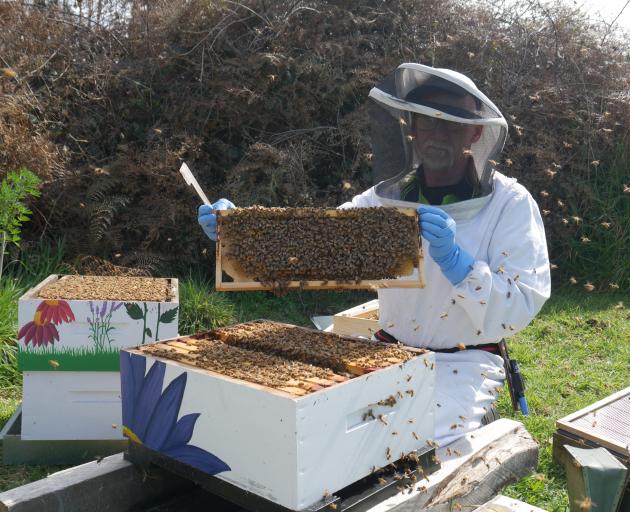
A Dunedin beekeeper is hoping for a warm summer.
Mark Kirkwood, of Caversham, has owned hives for about three years and will open his shed to sell his Harington Point honey this weekend.
He has about 15 hives in total, scattered throughout Harington Point, Saddle Hill, Portobello and central Dunedin.
Mr Kirkwood was always "fascinated'' with bees when he was younger and always used to drive past hives in Central Otago.
"I kept getting drawn to them,'' he said.
A few years ago, while working at his job as a courier, he dropped some honey extractors off to a man and started talking to him about them.
He took a beekeeping course shortly after"and then away I went''.
"If you want to get into beekeeping you have got to have someone that knows what they are doing ... or join a bee club.''
Mr Kirkwood said it was difficult to get honey in his first year because the cold, wet weather meant there was a short flowering time, so the bees could not get as much pollen and nectar.
It needs to be warm for flowers to successfully produce nectar otherwise "there's nothing for the bees to eat''.
Mr Kirkwood and his wife planted about 300 natives at their Harington Point property for the bees to feed from, to ensure they were getting enough nectar and pollen.
He said it was important to "think ahead'' as to what plants the bees might need and find out what was going to grow in the area.
"For me, it's all about looking out for these wee girls.''
The amount of honey extracted from each hive was dependant on the weather and what had been flowering but he said if he could get 20-25kg from each box he'd be happy. "But it can vary.''
Last year some of the nectar dried up on the flowers because it was too hot, he said.
The ideal conditions were when it had been raining at night and was hot during the day.
Varroa mites and diseases were a major concern, because they could make the bees sick and give them a virus which could deform their wings so they were unable to fly.
"Then there's less and less bees that can go and forage and things just collapse.''
Tending to the hives took a lot of work but it was worth it.
"If you don't it's just not going to happen.''
JESSICA.WILSON @thestar.co.nz












